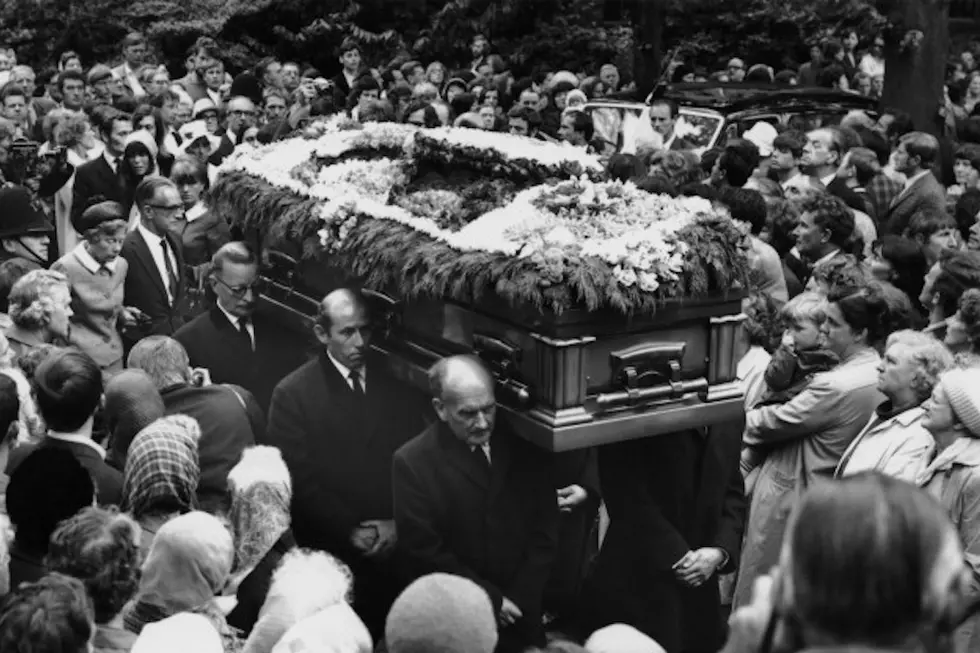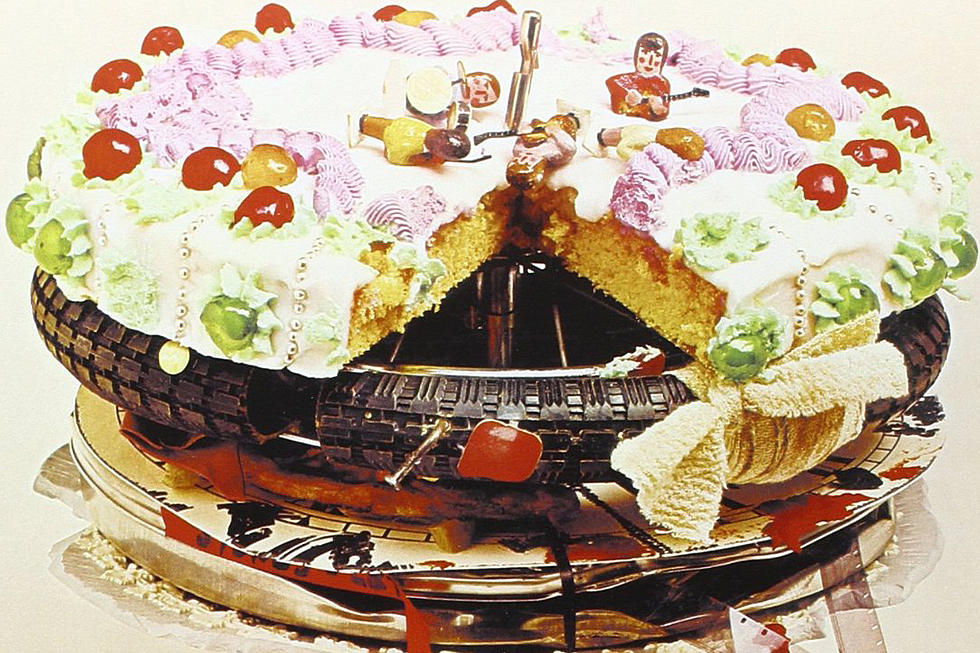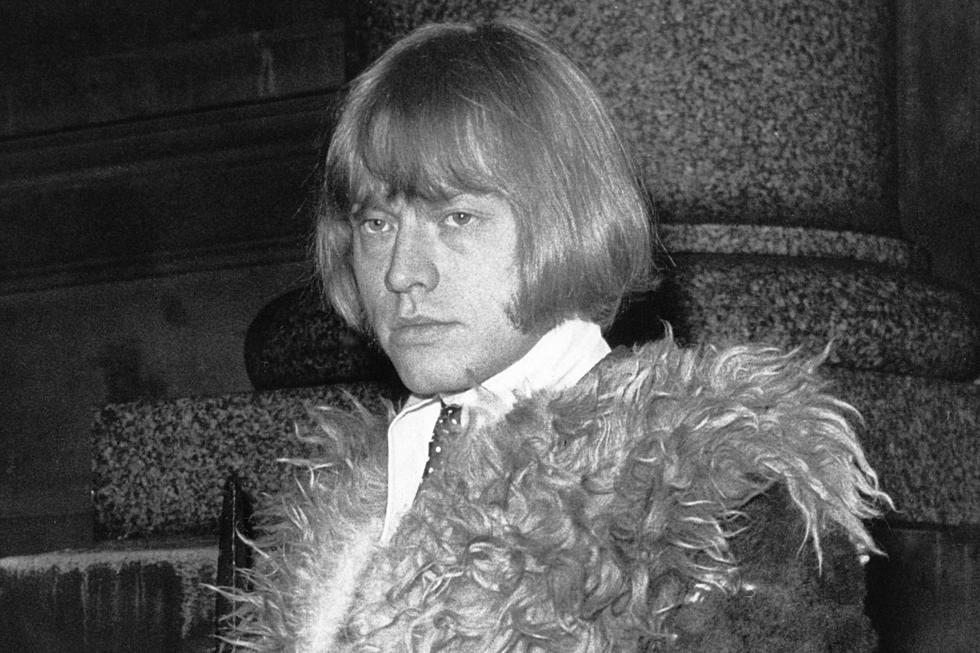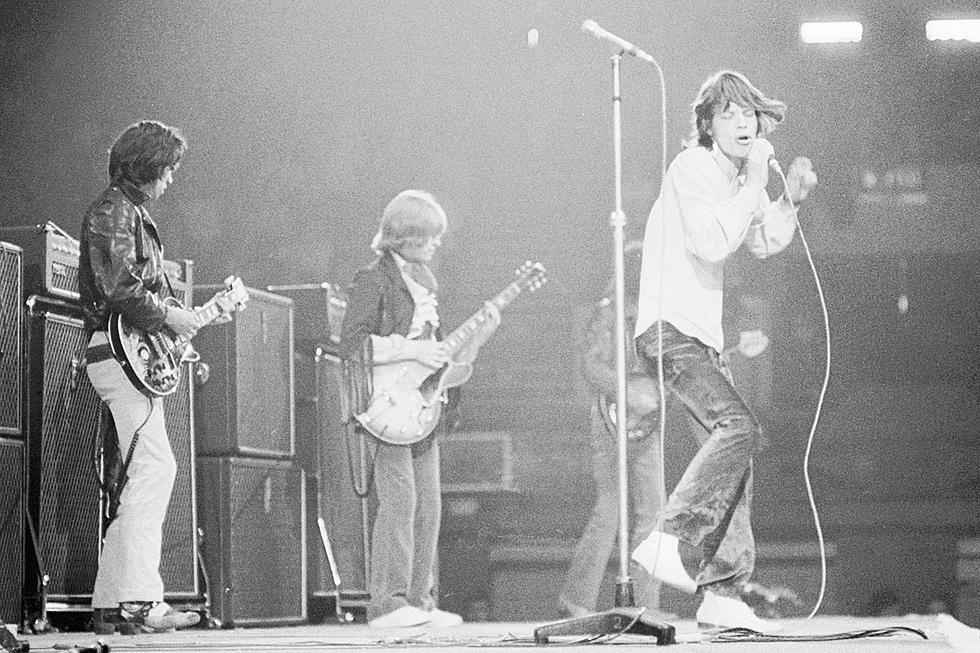
The Day Rolling Stones Co-Founder Brian Jones Was Found Dead
Rolling Stones co-founder Brian Jones was found dead on July 3, 1969, at his home at Cotchford Farm. The news sent shockwaves through the rock world.
Jones' life was in the midst of a severe upheaval at the time of his passing. The year before, he’d been arrested for the second time for possession of cannabis, which further exacerbated tensions he’d been having with the Rolling Stones. On top of that, it seemed to many that his heart just wasn’t in the band anymore.
While recording went on for the Rolling Stones' next album, Let it Bleed, Jones' contributions remained minimal: He added only percussion to "Midnight Rambler," and an autoharp section to "You Got the Silver." The group, wary of both his spiraling substance abuse problems and overall erratic behavior, collectively decided it was time to show Jones the door.
“It had come to a head and Mick [Jagger] and I had been down to Winnie the Pooh’s house,” Keith Richards wrote in his autobiography, referring to Jones’ estate – which at one time belonged to Pooh author A.A. Milne. “Mick and I didn’t fancy the gig, but we drove down together and said, ‘Hey, Brian. … It’s all over pal.'"
Jones was subsequently replaced in the band by Mick Taylor, a former member of John Mayall's Bluesbreakers.
Just a few weeks after his dismissal, Jones was discovered floating facedown in the pool by Anna Wohlin, his Swedish lover. She managed to pull him out, but it was too late to do anything. Brian Jones was gone, forever a member of rock’s "27 Club."
Meet the Members of Rock's Tragic '27 Club'
Given the turmoil in his life leading up to the event of July 3, speculation has raged over the years about whether Jones' passing was an innocent accident, a calculated act or the result of foul play. The coroner’s report officially ruled it a “death by misadventure,” but others aren’t convinced.
One of those who suspected foul play was Wohlin. “Brian is still portrayed as a bitter, worn-out and depressed man who was fired because of his drug habit … and who died because he was drunk or high,” she told the Mirror in 2013. “But my Brian was a wonderful, charismatic man who was happier than ever, had given up drugs and was looking forward to pursuing the musical career he wanted.”
Wohlin went on to point the finger at handyman Frank Thorogood, who had been hired to finish up some odd jobs around the musician's home: “I don’t know if Frank meant to kill Brian – maybe it was horseplay in the pool that went wrong. But I knew all along he did not die a natural death. I’m still sure of it.”
A period of deep mourning followed. Jones' old band mates were in the studio recording when they got the news, and as Richards wrote: “There exists one minute and 30 seconds of us recording "I Don’t Know Why," a Stevie Wonder song, interrupted by the phone call telling us of Brian’s death.”
Just two days later, the Stones carried on with a planned concert held at Hyde Park in London that was repositioned as a tribute to Brian Jones. Jagger read a piece of the Percy Shelley poem Adonais before hundreds of white butterflies were released into the summer air.
Jones was then laid to rest on July 10, 1969 at a ceremony at Cheltenham Cemetery. Bill Wyman and Charlie Watts were the only members of the Rolling Stones in attendance.
Ranking Every Stones Solo Album
You Think You Know the Rolling Stones?
More From KKTX FM







